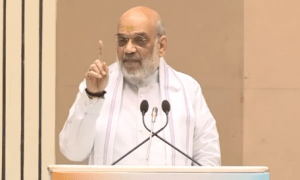Acting on a request from Bahrain, the CBI has filed a case to “locally prosecute” an Indian national who allegedly embezzled funds worth 50,000 Bahraini Dinar or BD in the middle-eastern country, officials familiar with the development said.
Rajeev Ranganathan Udayanandan, a native of Thiruvananthapuram in Kerala, while working in one Abdulla bin Ahmed Al-Roomi Contracting Establishment between January and February 2016, allegedly embezzled the cash amounts of the company which were in his possession by virtue of his position, according to the FIR registered by the agency.
As part of his responsibilities in the company, he not only dealt with the customers and managed the establishment on behalf of the proprietor but also handled purchase, supply of building materials and payments for the same. After taking money from customers, he did not deposit the same in company’s account. Rather, he embezzled the same for himself, according to documents shared by Kingdom of Bahrain with the Indian government.
From the embezzled money, he bought two vehicles for himself: a Tata Hilux pickup truck and a Nissan Sunny car, the documents reveal.
Udayanandan was sentenced in absentia to three years imprisonment by a lower criminal court of Kingdom of Bahrain on November 23, 2017 for breach of trust after which the authorities there approached the Indian government. The ministry of external affairs (MEA) wrote to CBI, saying since the crime is punishable in Bahrain for at least one year imprisonment, similar conduct is punishable in India too and hence is extraditable under the Article 2 (1) of India-Bahrain Extradition Treaty. The MEA added that though article 6 of the treaty excludes extradition of own nationals, it obliges the requested state to prosecute its nationals in respect of the offence sought for.
After deliberations, it was decided that CBI will locally prosecute Udayanandan and a case was registered few weeks back.
The CBI is the nodal agency in India for prosecuting Indian nationals who have committed crimes abroad. Earlier, in January this year, it had registered a case to “locally prosecute” an Indian national who had committed a fraud in the UAE.






















 WhatsApp us
WhatsApp us